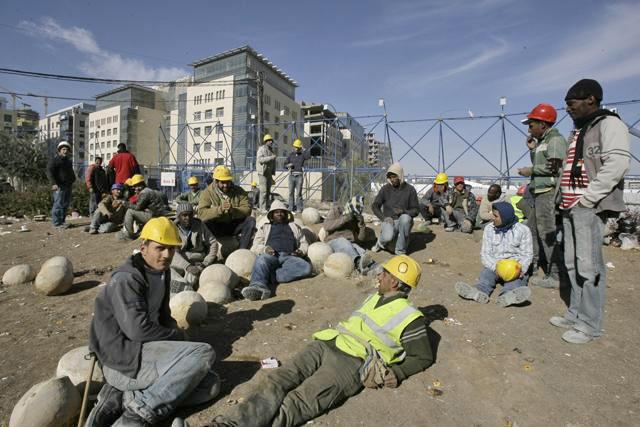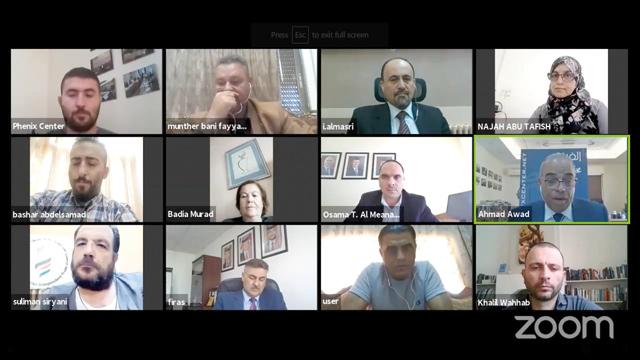You are here
Online panel session held on decent work
By Bahaa Al Deen Al Nawas - Oct 21,2020 - Last updated at Oct 21,2020
AMMAN — The coronavirus crisis has deepened the issues related to decent work in Jordan through its negative impact on different components of the Jordanian labour market, which suffered from many problems even before COVID-19, an online panel session heard on Monday.
The participants voiced their statements during a panel discussion held by the Phenix Centre for Economic Studies via the video conferencing platform Zoom, under the title “The impact of the coronavirus pandemic on decent work standards in Jordan”, which is part of a series of sessions held in cooperation with the Friedrich Ebert Foundation on the coronavirus and its impact on labour.
During the session, Director of the Phenix Centre Ahmad Awad presented a report, which showed that although the Kingdom as the first Arab country to sign an agreement with the International Labour Organisation (ILO) to implement a national programme on decent work, the conditions for decent work, even before the onset of the coronavirus crisis, “have been very weak”.
The standards of decent work are directly related to the availability of work opportunities, freedom of organising unions, collective bargaining, social dialogue and the presence of social protection to workers as well as proper and fair salaries, the report pointed out, adding that “the weak implementation of the labour and social security laws led to more violations against workers in many sectors”.
The novel coronavirus in the past few months caused the loss of thousands of jobs, increasing unemployment rates in the second quarter of 2020 to 23 per cent, which the report said could increase further due to the economic regression in the Kingdom, possibly reaching 5 per cent by the end of this year.
The report called for amending the Social Security Corporation Law and other related regulations to include all workers in the social security system through new insurance tools that make it easier for workers in informal sectors to participate in social security, especially as half of the work force in the Kingdom is not covered by any form of social protection.
It also called for making core amendments to the Labour Law based on international standards and the Universal Declaration of Human Rights, increasing the effectiveness of implementing regulations related to workers to prevent violations and enable workers to enjoy decent labour conditions.
The participants highlighted the importance of providing women with proper work opportunities in light of the crisis, and the importance of providing maternity leaves in accordance with the law for women who need them, in addition to implementing flexible work systems and paying them equal salaries. They said that women are most vulnerable to being cut off from their salaries or laid off due to defence orders.
They also called for reconsidering salary policies and creating a new system that provides a minimum wage that fits the citizens’ living conditions, instead of the current one that pays only JD220 monthly minimum wage.
The session saw the participation of representatives from the ILO, Sisterhood Is Global Institute, Centre for Women’s Studies at the University of Jordan, Tamkeen for Legal Aid and Human Rights, and representatives from various associations and unions from various sectors.
Related Articles
AMMAN — Working conditions in the Kingdom remain "far from the decent work standards" and continue to deteriorate in several economic sector
AMMAN — The Phenix Centre for Economic and Informatics Studies released on Saturday a report on decent work in Jordan in partnership with th
AMMAN — The coronavirus crisis has brought challenges and gaps in implementing occupational health and safety measures in economic facilitie


















